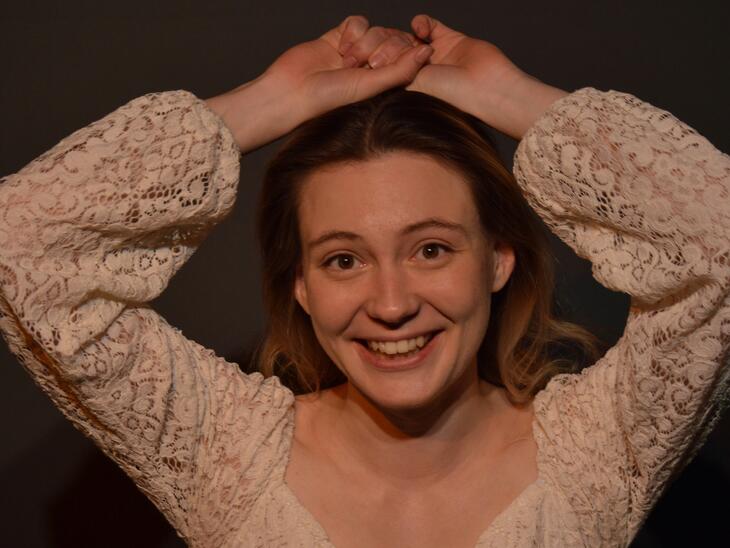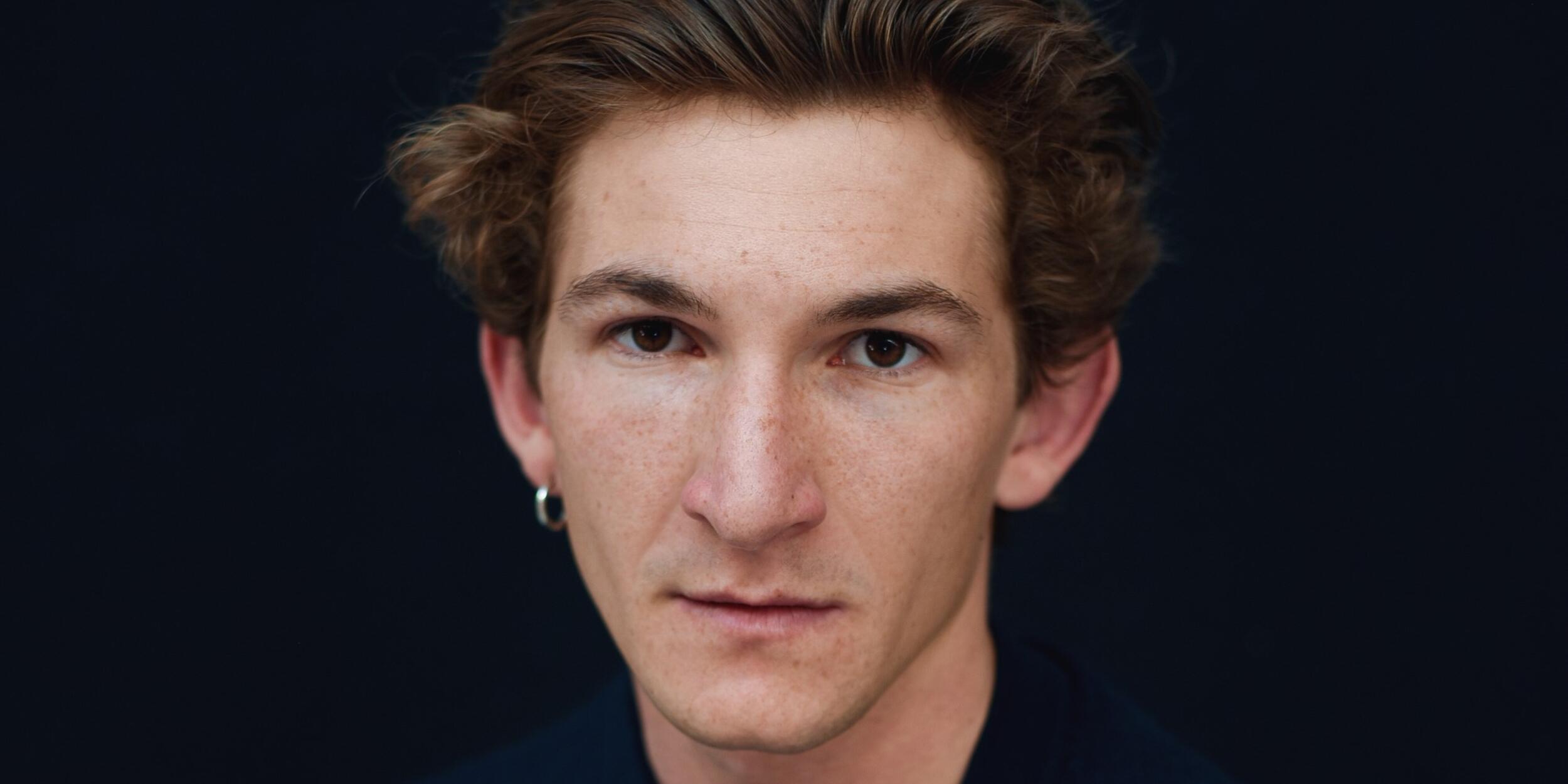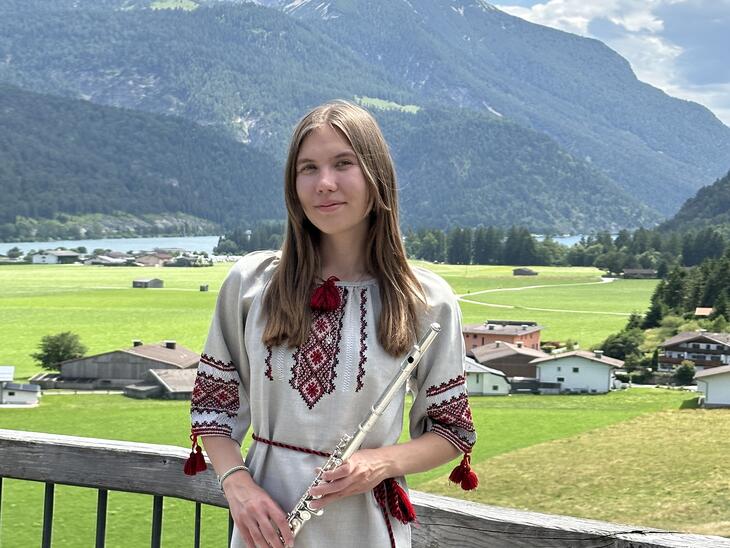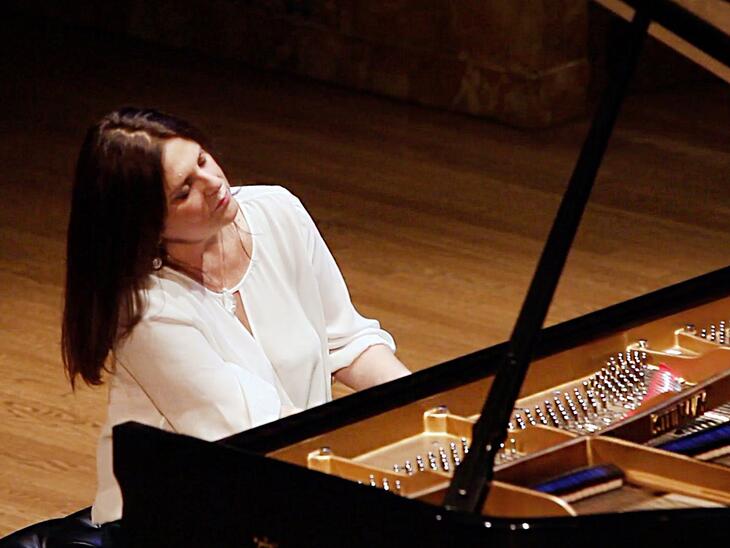Augustin Groz gained his first stage experience at the Vienna Children's Theatre under the direction of Sylvia Rotter. This was followed in 2016 by engagements at the Schauspielhaus Wien for the 504-hour theatre installation "Cellar Door" (Thomas Bo Nilsson). In 2017, he dedicated himself to musical theatre with "Die Leiden des jungen Faust" at the Theater an der Wien (Daniel Pfluger). His interest in contemporary dance brought him to the Festival International des Écoles Supérieures d'Art Dramatique in Morocco with the piece development "What Now" (Anna Balslev), where they received the Special Jury Prize with the piece. This was followed in 2019/20 by "Neverland" at the Thalia Theatre Hamburg (Antú Romero Nunez) and in 2019 by the Israeli short film "The Last Nazi Hunter" by Matan Galin & Yuval Berger (Steve Tisch School of Film & Television, Tel Aviv), for which he received two awards for best supporting actor.
For your role in director Özgür Anil's feature film "Wer wir einmal sein wollten", you received the award for best young actor from the Max Ophüls Festival in 2023. Congratulations on that! The film can be seen on 11 June in Salzburg at the Mozartkino. You play the brother of the main character Anna (Anna Suk), who works at a drama school where she is regularly reminded of who she once wanted to be: an actress. Now, however, she wants to study law and is working hard for her independence. When her brother turns up with a black eye, Anna increasingly stumbles somewhere between family responsibility and autonomy. What do you think makes the film stand out and why should we definitely see it?
I'm absolutely delighted that the film is now being shown in cinemas in Austria. I love this film and have probably seen it at least 20 times. I had an incredible amount of fun working on the film during production. We were a special team of almost 100 young people who worked on this film for free. I think the reason why we worked so harmoniously together is the script, which contains an incredible amount of sensitivity. This is very important for a film and especially for an Austrian film. Only around five per cent of films seen in Austrian cinemas are Austrian films! The film is very rich in detail, there are so many small emotions that, for me, tell of great humanity. As an audience, you have so much time to watch the characters make their decisions in the moment of life, from their social environment. That's something special.
As an actor, how do you prepare for roles, including difficult characters? How did you prepare for your role?
There are probably many answers. I very quickly found a good emotional working relationship with Anna, we were able to quickly build up an intimate sibling relationship and we really enjoyed acting together. That naturally helps when preparing for the film. This sibling relationship developed naturally. Trust was very important here. This made it all the more interesting to work out how Anna deals with it when Patrik - the character I play - starts to manipulate and take advantage of her. The basis of trust between Anna and me meant that there were lots of opportunities to play out this scope for breaking trust, with and without each other. Of course, I read the script very often. The drama programme at the Mozarteum was very physically intensive. There was a lot of sport and dance. The focus of acting expression is less on the psyche and more on physical acting and a thematic, political examination of a topic. I think the character emerges from this interplay of politics, structure, theme and body. That had a strong influence on the role of Patrik. I thought about how a person moves who is lost in Vienna, who is very much on the lookout, who is always getting up to mischief. I can remember the first costume rehearsal. I was given a pair of shoes and I thought it would be cool if he had fast shoes. Whatever that means exactly.
There is hardly any specific training for film at the Mozarteum. Training programmes are mostly stage-based. On stage, the now, the moment, is important. I benefited from that in the film. I was also the first to thank the editor because I knew that no two takes were the same. I improvised a lot and the director Özgür Anil put a lot of trust in me, so I took a very theatrical approach to the shoot. In the sense of: what does the location offer me, what do my colleagues offer me, so that the space opens up, as if you were acting in a three-dimensional space and not just for the camera. There is a spatial depth in the film that I only noticed later.
The processes in theatre are different to those in film ... What are the good things and where are the challenges?
I love rehearsal processes. I love talking about themes, script, character and political milieu. And I love the collective and the discussion of something with and through other people. That's one of the special things about theatre. It's different with film. In preparation for a film, it's a rather solitary affair for the actor. That's why I try to talk to as many people as possible during the filming, during the breaks, to get closer to the material in conversation. What I really like about theatre is the freedom. For example, I did a master's production here in New York at university and I was able to live out my absurd side in the play. You can play relatively big and exuberant, do a lot with language, allow yourself to make mistakes and use them on stage in the moment. In film, you need a generous director who allows you to do that. Although that would also be inappropriate in many films. There are often very clear ideas about what realism should prevail. That's why, as an actor, you forbid yourself many impulses that arise from the imagination. Poetry is very important to me in relation to the medium of film.
Who did you always want to be? Was your career path planned that way?
I used to think you could only become a lawyer or a doctor. I started studying business law, then I prepared for the medical entrance exam and shortly before that, my friend and actor Anton Widauer advised me to register for the acting entrance exam. Acting had been on my radar before, but only as a hobby. After the first acting entrance exam, it was clear that I really wanted to do it. That hasn't changed since then. I seek and love the intensity that you find on stage and in front of the camera. If I don't experience that, I feel lonely and almost a little pointless. I went to New York to study even more. Especially things that don't focus purely on acting, but more on film and writing.
You currently live in New York and have just completed your Master of Fine Arts degree. To what extent has your life or your perspective changed?
It was a very broad degree programme in which you could choose from many courses and specialisations. My focus was on writing for theatre and film. I took experimental film courses and tried to expand my own relationship to filmmaking. I grew up without TV and I don't know if this is an Austrian opinion or if it was just my parents' opinion, but the basic tone was that film was just a distraction from real life. Watching a film was therefore worth less than reading a book or going to the theatre or playing an instrument. Film as a bad American influence. And then there is often the opinion that there is no culture in America. My experience is that there is culture here - how could it be otherwise? The question is rather what Americans define as their culture. It was only here that I understood the level at which film is American culture. Going to a museum is culture, engaging with a film is culture. Every film speaks for its time and represents the issues of that time. It is taken just as seriously as classical music in Austria. In New York, people are very familiar with the medium of film. They know many more filmmakers and actors than I do, even though they have completely different professions. This has changed my way of consuming films because I now watch films much more closely and engage with them more intensively. I've understood what an intense cultural asset it can be and how much a film can tell us about culture and history if you look at it in its historical and cultural context. I've also started writing, and that's here to stay.
What have been the most important experiences in your career so far?
The recording at the Mozarteum was a special experience for me because people watched and listened to me and interacted with me in a way that I had never experienced before. I had the feeling of being taken seriously and of arousing interest in who I can be as an artist. This aspect is also special at the Mozarteum compared to my American degree programme. That doesn't happen everywhere. Contemporary dance was also very important to me. In Salzburg there is the SEAD (Salzburg Experimental Academy of Dance). I am so incredibly grateful for the focus on physical expression and the interaction with the SEAD students, because there was a connection between theatre and dance that showed how closely all art forms are connected. And these connections do an incredible amount with theatre, in my expression as an actor. Because it's easy to lose your sense as an actor. I keep thinking that acting is a weirdly selfish job - I'm not helping anyone. Why am I doing this? The interdisciplinary and intrinsically political nature of art can be very helpful here.
What advice would you give your younger self for their career?
To fight as hard as possible for people to stay together and find each other. Even within a year group, although that is sometimes very exhausting because it gets very personal, things get complicated and it's easy to drift apart and avoid each other. There are so many (political) things happening in my life right now that are putting friendships to the test, making it difficult to talk to each other because it seems as if the moral concepts are diametrically opposed. Cultural balancing acts fill my life in this respect and condense these discourses. It has sometimes become too easy to judge people for their opinions, which is very challenging for me.
Your spectrum and your skills are very broad - almost frightening for me. You speak six languages, you do dance, acrobatics, badminton, archery, ice hockey, football, ice skating, alpine skiing, snowboarding, tennis, trekking, yoga, fencing, rifle and pistol shooting and horse riding - what do you do when you're not on stage or in front of a camera or preparing for a project like this?
It's not that I do all that every day (laughs). It's more like I think about what to write every day and despair about it. I'm already sporty and keen to experiment. But it's also difficult sometimes because it feels like you drop everything when you dedicate yourself to something new. But film and theatre are definitely my "hobbyhorses".
What is your wish list, your wish for Father Christmas? What are your next projects or plans?
I'm moving to Berlin in September 2024 and at the moment I just want to work as much as possible in film and theatre and get to know people with whom I can realise projects. I'm not good on my own, what's important is "a good community"!
Is there anything else you would like to share with us?
Yes, I hope that all the people reading this will get tickets for "Who we once wanted to be" as soon as possible and have a nice long evening at the cinema with friends and watch the film with an alert, curious and kind eye. Afterwards, have a beer or a white spritzer in the Gastgarten, which I haven't had for so long ... so please have one for me and enjoy the nature in Austria, which I miss very much!




